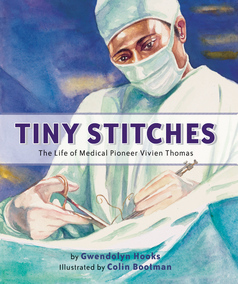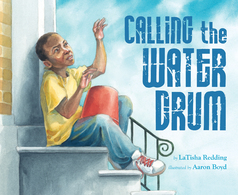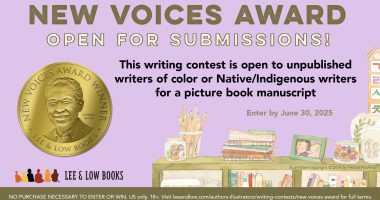Well, we have finally reached the day after the last presidential debate. It’s a slow crawl to the finish line after the longest election cycle in the history of election cycles. Just a few more weeks, friends! No matter where you stand on the political spectrum, you probably feel a little (or a lot) disappointed with how our sacred democratic process has devolved into one long reality TV episode (and this one ain’t winning no Emmys!).
But working with children’s books gives me hope. Why? Because when politics goes low, children’s books go high (and I’m pretty sure Michelle Obama would agree). Here at Lee & Low, we believe that stories have a deep and lasting impact not just on who we are as children, but who we grow up to be. Picture books cultivate empathy, respect the contributions of others, teach us about justice and fairness, and build bridges between cultures. Also: they can’t flat-out lie. Wouldn’t it be nice if those values were reflected by adults, too?
Here are a few things we think picture books have to teach us this election season:
1. Nonfiction means nonfiction.
Have you ever watched librarians debate whether a book can  be considered nonfiction if there’s invented dialogue or whether a historical fiction novel cites enough primary sources? When it comes to children’s books, facts are actually facts, and the standard for nonfiction is extremely high. Next time you hear a candidate speak, ask yourself: would this speech be eligible for a Sibert Informational Book Award? If not, then it is probably not as accurate as a children’s book on the same topic, and should be tossed.
be considered nonfiction if there’s invented dialogue or whether a historical fiction novel cites enough primary sources? When it comes to children’s books, facts are actually facts, and the standard for nonfiction is extremely high. Next time you hear a candidate speak, ask yourself: would this speech be eligible for a Sibert Informational Book Award? If not, then it is probably not as accurate as a children’s book on the same topic, and should be tossed.
Recommendation: read Tiny Stitches: The Life of Medical Pioneer Vivien Thomas by Gwendolyn Hooks, a biography that pulls no punches about Vivien’s life, achievements, and the racism he faced. And there are citations and textual evidence to back it all up! Speaking of…
2. Read the Backmatter.
Not sure where Aleppo is? Don’t remember when election day is? Check out the backmatter for maps and timelines! Children’s books, especially nonfiction, are often bursting at the seams with extra information including maps, glossaries, and author notes that provide additional context. Backmatter lets us dive deep into a topic to achieve better understanding. This sure comes in handy when you are about to speak on a topic in front of several thousand people!
Recommendation: read Prairie Dog Song: The Key to Saving North America’s Grasslands by Susan Roth and Cindy Trumbore, an environmental story with enough pages of backmatter to turn even a casual reader into an expert.
3. Immigrants Contribute to Our Country and Should Be Valued.
It’s unfortunate that this even needs to be said, but here we are. The anti-immigrant rhetoric during this election has been dialed up to an 11, and many people feel unwelcome and unsafe. This is the  exact opposite of how we teach our children to treat others. Immigrants are our neighbors (Xochitl and the Flowers), our friends (First Day in Grapes), and our own family members (Grandfather Counts). They are chefs (Hiromi’s Hands), athletes (¡Beisbol! Latino Baseball Pioneers and Legends), and poets (the Cycle of the Seasons series). Some have taken arduous and heartbreaking journeys for the chance at a better life in the US (Calling the Water Drum); some are still waiting to be reunited with family on the other side of the border (From North to South). We can’t help feeling that if *some* of the candidates (ok we’ll just say it: Donald Trump) had read even a handful of these stories as a child, they might treat immigrants with more respect and compassion today.
exact opposite of how we teach our children to treat others. Immigrants are our neighbors (Xochitl and the Flowers), our friends (First Day in Grapes), and our own family members (Grandfather Counts). They are chefs (Hiromi’s Hands), athletes (¡Beisbol! Latino Baseball Pioneers and Legends), and poets (the Cycle of the Seasons series). Some have taken arduous and heartbreaking journeys for the chance at a better life in the US (Calling the Water Drum); some are still waiting to be reunited with family on the other side of the border (From North to South). We can’t help feeling that if *some* of the candidates (ok we’ll just say it: Donald Trump) had read even a handful of these stories as a child, they might treat immigrants with more respect and compassion today.
4. Muslims Are Not Our Enemy.
During this election it’s been suggested that Muslims be deported, rounded up, or kept out of the country. These are deeply disturbing suggestions, and illuminate a huge divide between some Americans and their Muslim neighbors. But knowledge is the best antidote to fear, and children’s books can help bridge the divide so we understand each other better. Reading books about Muslim culture at school, at home, and on the campaign trail is a wonderful way to combat Islamophobia!
Recommended reading: Coming to America: A Muslim Family’s Story captures the hopes and dreams of an Egyptian family in New York; Growing Peace: A Story of Farming, Music, and Religious Harmony gives us a model of peaceful coexistence; and Twenty-two Cents: Muhammad Yunus and the Village Bank shares the story of Nobel Prize winner Muhammad Yunus, whose work has helped elevate so many people out of poverty.
5. Respect women.
Must it be said? It must. Women can be the heroines of their own stories, in fiction and in real life. Picture books illustrate this. Middle grade novels illustrate this. Young adult novels illustrate this. Only politics, run by and for adults, doesn’t seem to have kept up. Use children’s books to teach young people to celebrate strong women, and to learn how to respect people of all genders.
Recommended reading: Shame the Stars by Guadalupe García McCall, a young adult historical fiction novel where the women are behind the revolution.
6. Don’t Use a Private Email Server for State Department Emails.
Just kidding, this is one area where children’s books don’t have much to offer.
The moral of the story is that if our books were readily available to today’s politicians when they were young, we might have had a very different campaign season — and perhaps a very different country. We can help shape the next generation by exposing them now to great stories that help us understand one another better. And for those of us adults who might be feeling hopeless in these last few weeks of election madness: it’s never too late to sit down with a good children’s book to remind us what actually matters!








